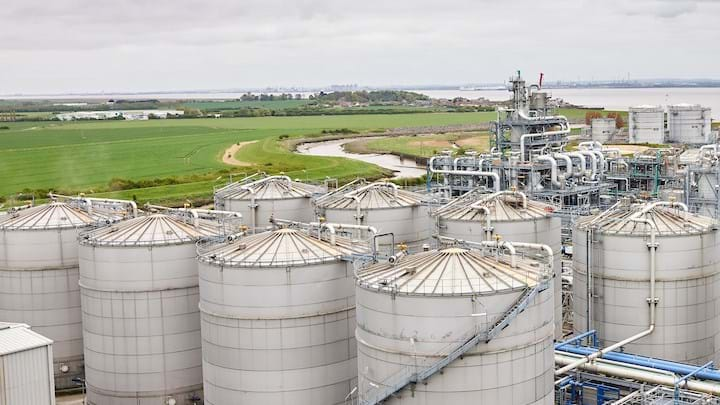UK bioethanol plant closure delayed ten days after government talks

VIVERGO Fuels has extended the deadline to close its bioethanol plant in Hull, UK, pending government support.
After weeks of turmoil in the industry triggered by the UK-US trade deal agreed in May, the UK’s largest bioethanol manufacturer had initially told the government it had until yesterday to offer support, or it would close. Following talks between Vivergo and government ministers last Tuesday, however, the company has now extended that deadline to 25 June.
In the UK, the main use of bioethanol is as a fuel blend in E10 petrol – the standard grade since 2021 – to help reduce emissions. Last week’s meeting with business secretary Jonathan Reynolds and transport secretary Heidi Alexander followed earlier discussions between MPs and plant employees who visited Westminster earlier this month.
Vivergo has not resumed purchases of wheat feedstock from UK farms – supporting around 4,000 jobs nationwide – since halting them after the trade deal was signed on 8 May. The industry has been in “full-blown crisis” since then, according to Paul Kenward, CEO of Vivergo’s parent company ABF Sugar.
Giving evidence to the parliamentary Business and Trade Committee earlier this month, Kenward told MPs that the turmoil stemmed from a “last-minute concession” in trade talks between the US and the UK, namely the decision to remove 19% tariffs on imports of American ethanol up to 1.4bn litres, equivalent to the UK’s entire annual demand. The industry has been warning that it will not be able to compete with cheap US imports produced from maize.
Vivergo is wholly owned by Associated British Foods (ABF), with an ABF spokesperson saying: “The short extension is intended to give space for departments to work up options – but time is very limited and we are clear that any further delay will require financial support from the government.”
It is understood that the industry is not seeking for the US-UK trade deal to be renegotiated, but instead for the UK government to support manufacturers once the deal comes into effect. The final terms of the deal and the implementation date have not yet been confirmed, although Reynolds’ US counterpart, commerce secretary Howard Lutnick, said last week the deal would become active “in the coming days”. Vivergo is asking the government to increase the amount of bioethanol in standard petrol from 10% to 15%, and for short-term “bridging support” of £75m (US$102m) in subsidies for a “period of a couple of years”.
Vivergo is the largest of the UK’s two major bioethanol manufacturers, with Ensus in Teesside also facing uncertainty. Both companies were running losses before the trade deal was struck, while Vivergo has only been profitable for six months since the E10 mandate in 2021. The industry has argued that 2022 regulatory changes – granting double subsidies for ethanol derived from waste – unfairly favours US producers, who primarily use agricultural waste as feedstock.
Recent Editions
Catch up on the latest news, views and jobs from The Chemical Engineer. Below are the four latest issues. View a wider selection of the archive from within the Magazine section of this site.




